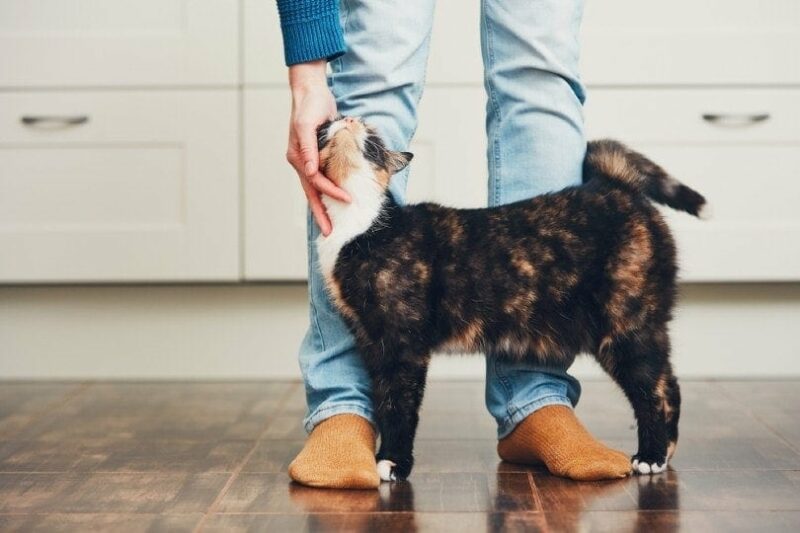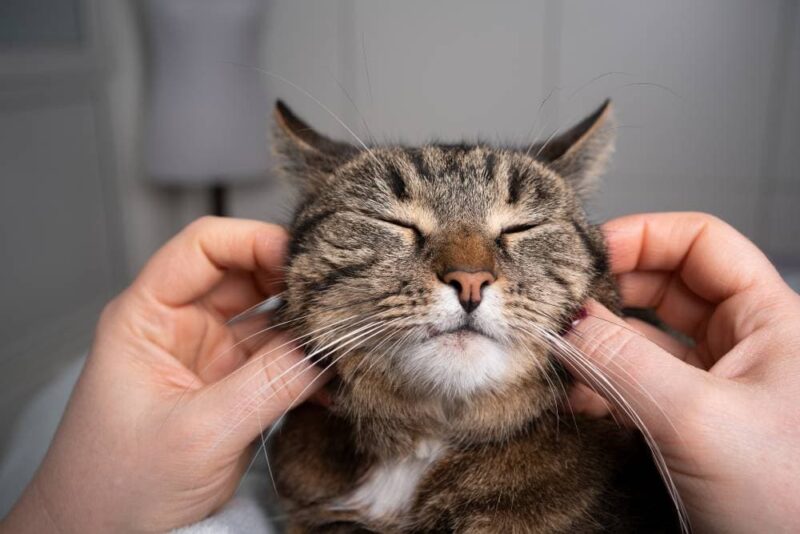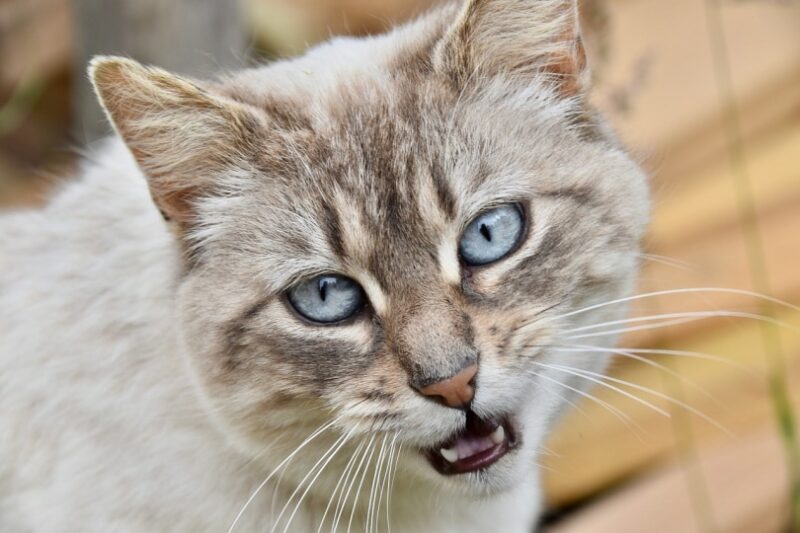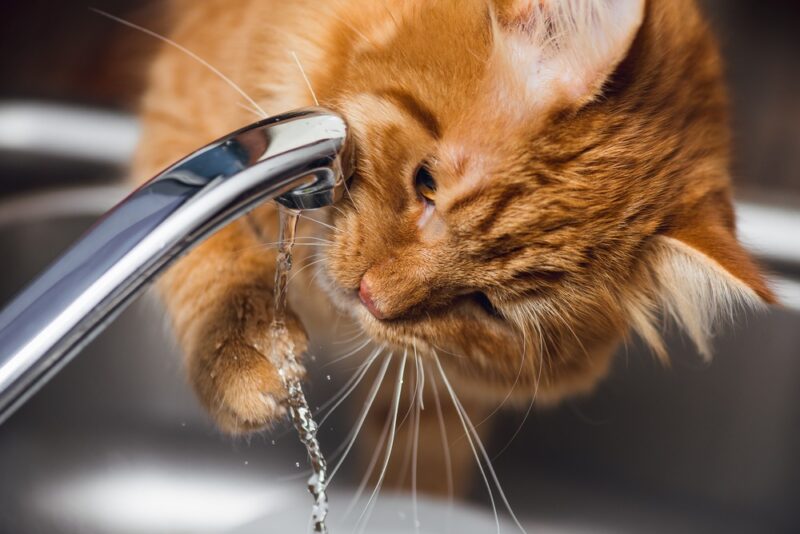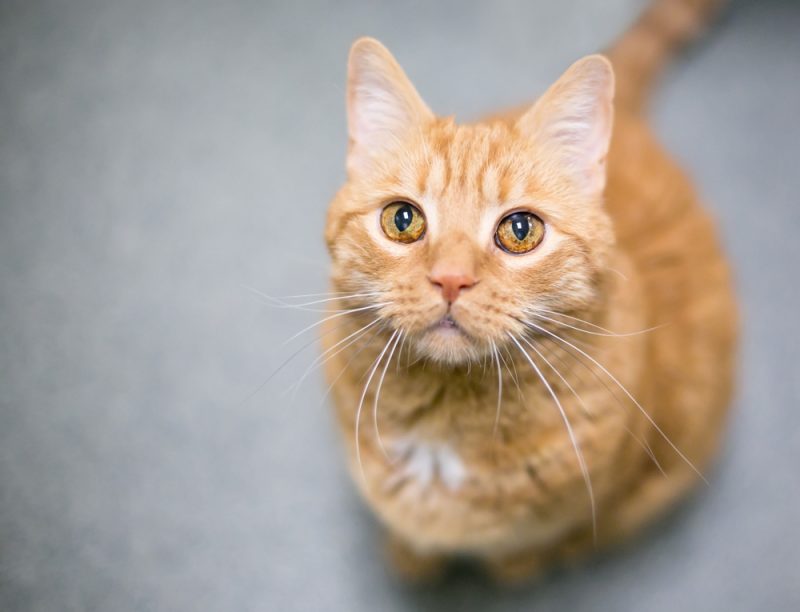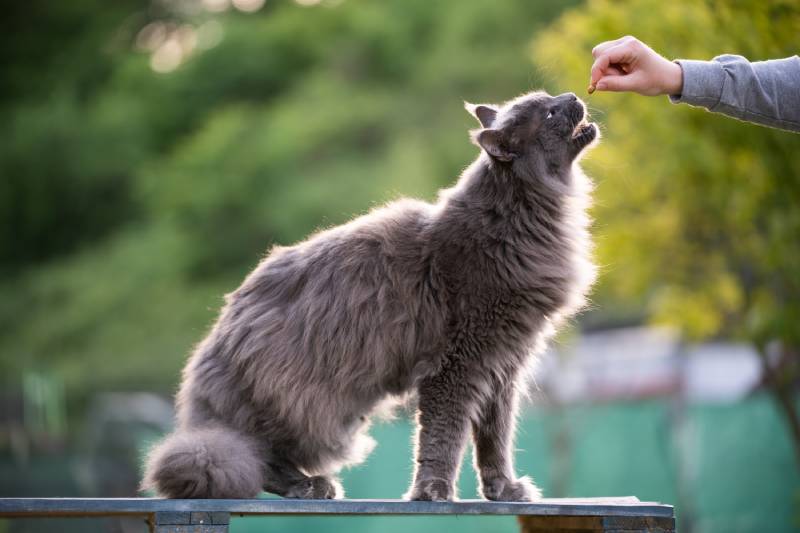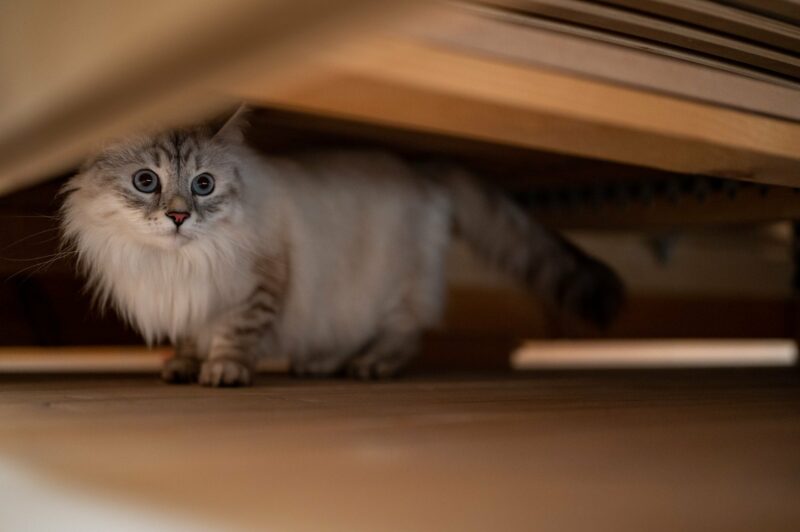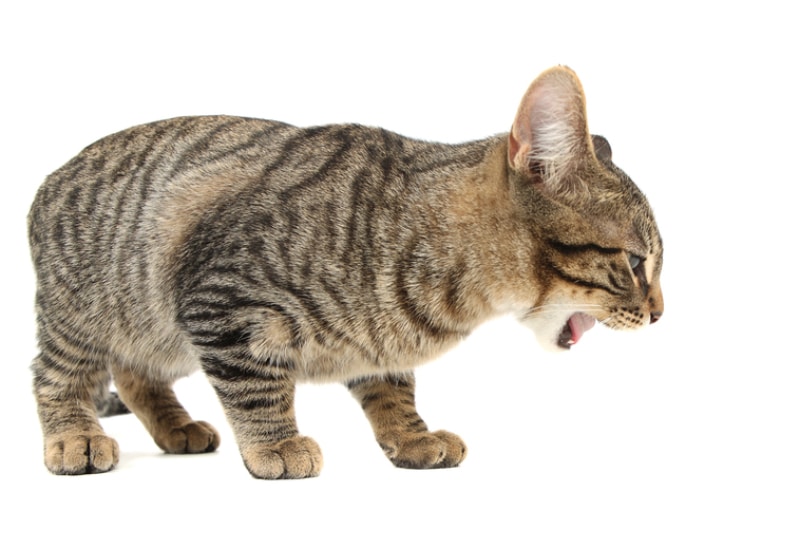You’ve likely had your cat rub their head on you multiple times. While cats are independent creatures that don’t trust easily, they are usually loyal for life once they do. However, even after you’ve established a bond with your cat, you should still know their body language.
For example, what exactly does it mean when your cat rubs their head on you? There are many common reasons that your cat does this behavior. Read to learn about them!

The 5 Reasons Why Your Cat Rubs Their Head on You
1. Your Cat Is Saying Hello
Once your cat decides that they like you and stops being the independent, stand-offish creature that they can be, they will start rubbing their face against you to say hello. Rubbing against your legs or body is your cat’s way of greeting you. It usually means they are happy to see you.
This may happen most often when you go to work and come home or if you’ve been gone longer than the cat is used to.
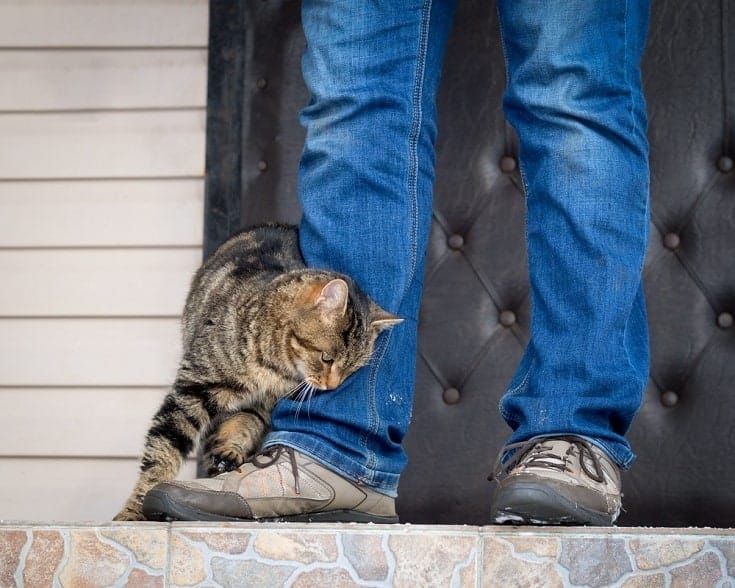
2. Your Cat Is Claiming You
Cats are not only independent, but they also want to claim what they think belongs to them. Cats like to mark people with their scents, at least those they trust and love.
Rubbing against someone or something is the cat’s way of accepting them into their environment and making them their own. Your cat will do this more than once, as their scent fades after a while. The scent helps the cat feel less stressed and calmer in their surroundings, especially if those surroundings are new.
When you leave your cat to go to work, your cat’s scent wears off, meaning that the cat needs to re-apply the smell when you get home. Licking, gently biting, head butting, or rubbing against you lets the cat reclaim their territory, which in turn makes the cat calm and happy.
3. Your Cat Is Creating a Group Scent
Feral cats often rub against one another to leave a scent on their cat colony. This creates a communal scent, which helps the cats know when intruders or threats are invading their group. Your cat may be doing this to build community and harmony with you. The cat also thinks they’re protecting you and your family by creating a group scent.
Cats can be very protective of their pet parents and the homes they love.
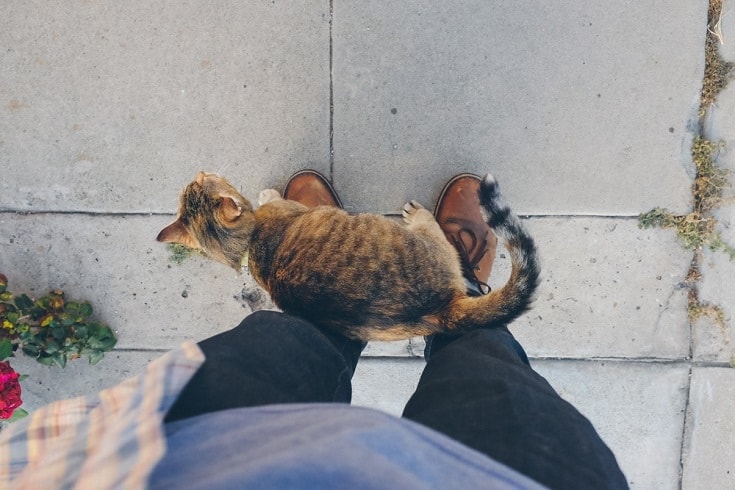
4. Your Cat Is Trying to Tell You Something
As a pet parent, you might often wish your cat could speak to you and tell you what they want. But cats talk in their ways. For example, if your cat is rubbing against the cabinet where their food is, it’s a safe bet that the cat is telling you that it’s feeding time.
If your cat is aggressively rubbing against you, it could mean that something is wrong. Either the cat is itchy, sick, or is giving you a friendly reminder that you need to clean out the litter box. There are quite a few things your cat could be trying to tell you when they are rubbing against you, and you need to pick up on the cues.
5. Your Cat Is Gathering Information
Your cat could be trying to gather information when they rub against you. This is the cat’s way of sizing up a stranger or new thing in their environment. It does not mean that the cat is extending an invitation to be petted, so don’t just start petting a new cat that is rubbing against you. Give the cat time to form their opinion, and they’ll let you know when the petting can begin.
Let the cat gather their information, and then if they want to be petted, they’ll tell you.
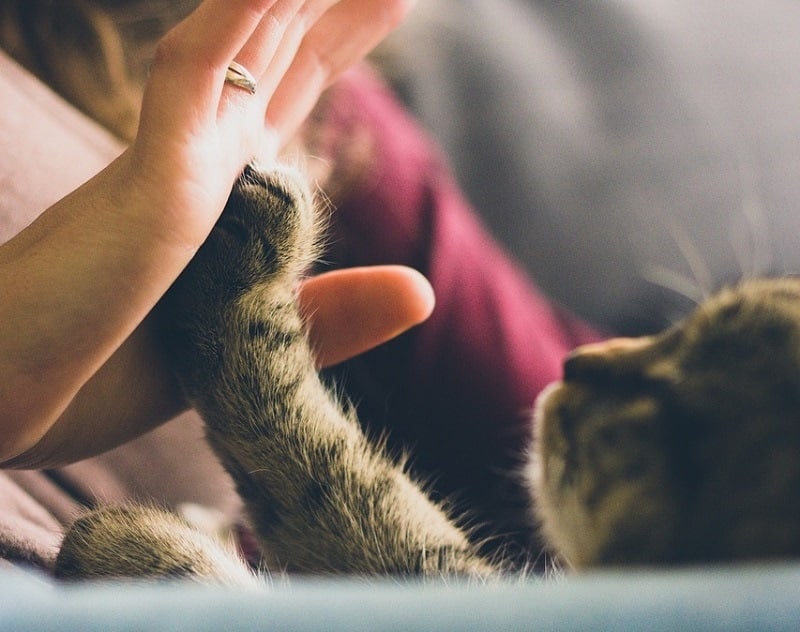

Should You Worry if Your Cat Is Rubbing Against Things?
While it is normal for a cat to rub their head against you, if they start doing it aggressively and do not stop, there could be a health issue going on. If you notice any of these signs, it is probably best to make an appointment with your cat’s vet.
If you need to speak with a vet but can't get to one, head over to PangoVet. It's an online service where you can talk to a vet online and get the advice you need for your pet — all at an affordable price!
- Overgrooming
- Scratching
- Eye flickering (nystagmus)
- Head tilting
- Vomiting
- Weight loss
- Diarrhea
- Confusion
- Meowing more than normal
- Hair loss
- Not grooming properly
Some illnesses result in cats that rub against objects or people too much.
- Ear infections
- Neurological disease
- Mouth pain
- Flea infestation
- Feline hypersensitivity disorder
- Allergies
If you notice any of these signs or your cat is suddenly over-rubbing on you, it’s best to get them to a vet for diagnosis and treatment. Most of these illnesses can be treated quickly, and your cat will return to their loving, loyal self in no time.

Conclusion
Cats are independent creatures that show their love in their own unique ways, and there are a few reasons that your cat rubs their head against you, from wanting attention to saying hello.
However, if your cat gets overly aggressive with the rubbing, something may be wrong, so it’s best to take your cat to the vet for a checkup. We all want our furry friends to be healthy and happy, and the best thing to do is make sure they are loved and taken to the vet regularly.
Featured Image Credit: Jaromir Chalabala, Shutterstock
